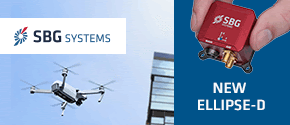| GNSS News | |
GNSS
GPS IIF-5 successfully launched
Aerojet Rocketdyne has successfully propelled the fifth GPS IIF military navigation satellite into orbit on February 20th. It was launched from Cape Canaveral Air Force Station in Florida by a United Launch Alliance Delta IV medium rocket. The GPS satellite, built by The Boeing Company includes a pair of Aerojet Rocketdyne propulsion systems which will be used periodically to restore the satellites to their designated orbits and to eventually decommission them.
The IIFs are designed to improve navigational accuracy for civil, commercial and defense applications worldwide. They feature more capability and improved mission performance, including predicted signal accuracy that is two times greater than heritage satellites; a 12-year lifespan that provides longer service and reduced operating costs; and a military signal that has better resistance to jamming in hostile conflict areas. www.Rocket.com
Veripos to provide GNSS Positioning Services for MEO’s Fleet
Singapore-based Miclyn Express Offshore (MEO), a leading provider of offshore support vessels across South East Asia, Australia and the Middle East, has awarded Veripos a fiveyear contract for provision of highprecision GNSS positioning services in support of its fleet of 27 ships.
Veripos will provide MEO’s fleet with VERIPOS Ultra Precise Point Positioning (PPP) service designed to deliver decimetre-level accuracies globally along with associated integrated mobile receivers.
Delta 4 rocket boosts GPS navigation satellite into space
Up to Seven GLONASS Ground Stations Planned outside Russia in 2014.
Russia will deploy up to seven ground monitoring and augmentation stations for GLONASS outside of Russia, according to GLONASS/GNSS Forum Association Executive Director Vladimir Klimov. “It is planned to deploy about six or seven stations on foreign territories this year,” Klimov said.
About 50 GLONASS ground stations are planned for construction. The stations will significantly improve GLONASS performance and provide efficient applications for high-precision navigation services and smooth monitoring of systems of coordinates and Earth rotation parameters, he said. Currently, there are 46 GLONASS ground stations on Russian territory, eight in neighboring countries, three in Antarctica, and one in Brazil.
Monastir airport uses new EU navigation satellite system
New satellite navigation systems are being introduced at Monastir airport in Tunisia with the assistance of the EU-funded MEDUSA project, implemented under the Euromed Transport GNSS II project.
According to the Enpi website (www. enpi-info.eu), MEDUSA had validated GNSS-based Localiser Performance with Vertical Guidance (LPV) approach procedures designed by the project for Monastir airport, as part of the project’s assistance actions for promoting the use of satellite navigation in the Euro-Mediterranean partner countries. Only a few months after the availability of partial EGNOS (European Geostationary Navigation Overlay Service) coverage in North Africa, the validation flights campaign was carried out with the support of the European Satellite Services Provider (ESSP), the EGNOS Services Provider, which performed the EGNOS feasibility assessment. www.ansamed.info
Taiwan creates its first spacebased GPS receiver
Scientists in Taiwan have developed the nation’s first space-based GPS receiver, which boasts several improvements over versions obtainable from overseas and can help cut the country’s reliance on foreign imports. The first locally developed space-borne GPS receiver, which helps satellites navigate in space, is expected to offer more freedom and independence for space missions, as exports of such products are normally kept under tight control by countries around the world, Chang Guey-shin, who heads Taiwan’s National Space Organization (NSPO), said. http://focustaiwan.tw/news/
Global location chip for wearables by Broadcom
Broadcom Corporation has introduced GNSS system-on-chip (SoC), designed for low-power, mass-market wearable devices such as fitness trackers and smart watches. The Broadcom(R) BCM4771 GNSS SoC with on-chip sensor hub enables consumers to more accurately track and manage their health and wellbeing by delivering precision activity tracking and location data while consuming less power than traditional architectures. www.broadcom.com











 (No Ratings Yet)
(No Ratings Yet)




Leave your response!